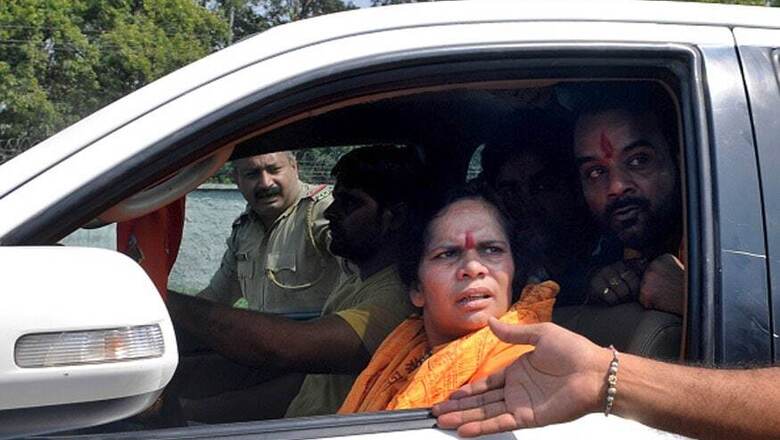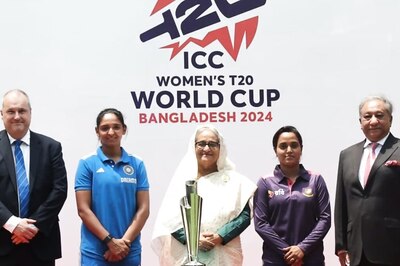
views
Dear Sadhvi Prachi,
Whoever we say I love you to, we, the Indian Muslim women, will still prefer an Islamic nikah. I will tell you why if you care to listen beyond your rhetorical hate of ‘leave your religion’.
In Islam, the marriage is a simple social contract between a man and a woman. The terms of that contract is stated in a ‘nikah-nama’. While divorce is discouraged in Islam, but not made into a difficult binary that would tie you down for all your life. It recognises that adults often fall out of love, might face incompatibility and possibly want to go their separate ways in life. No, the Islamic marriage is not a sacrament for ‘saat janam’.
The nikah-nama like any contract starts with stating who are the two sides entering the agreement. It requires consent from both the bride and groom. That much I am sure Bollywood has educated you with its ‘qubool hai’ scenes. It also requires two witnesses for the same. What most people do not know, is that like any other modern contract, the nikah-nama can be customised according to the bride and the groom. Hyderabad’s Asiya Shervani has been a successful corporate professional. She had the clause inserted for Haq-e-talaq in her nikah-nama. This clause grants her equal rights as a man in taking forward a divorce proceeding in three easy sittings. “It is totally aligned with my feminist principles. I was only 21 years old and my feminist identity was only beginning to take shape at that stage of my life. I love my nikah-nama, not for sentimental or romantic reasons, but because it is a symbol of my equal relationship with my partner. I would not have it any other way. It has facilitated my self-definition and my self-identity,” says Asiya. By the way, she also had a clause for equal respect for each other’s career ambitions inserted. Don’t all we women, irrespective of our religions, wish we had this clause signed by our life partners?
Let's next take the case of author Arif Mohammed Khan. Keeping in view two points: One that sunnah of Prophet Mohammed (PBUH) had put the condition of a monogamous relationship at the time of the marriage of his daughter. So it’s a sunnat to do so. And second that the Quran says ‘marry those among you who are single’. Considering both these points, Arif saheb inserted the clause in his son’s nikah-nama that he shall never take on a second wife while being married to the first. Did I hear you say polygamy again?
There are innumerable other examples if you care to listen, Sadhvi ji. One can add custody of kids, Mehr or any other mutually decided clause that is not in violation of the Quranic principals. The nikah-nama clauses can effectively put an end to instant triple talaq, halala, polygamy and any other religious misconception that you have that paints the Indian Muslim women as “oppressed” or “victims”.
It is lovely that you are vocal with a strong voice, but how about using that in the line of service to the nation’s daughters by educating Muslim women on their own rights instead of instigating them? Not that there are no social problems faced by people of all faiths? Am sure you wouldn't want a debate on the much higher incidence of abandoned wives in your faith. Because it is not about your faith or my faith. This is about Indian daughters. We are all together in this.
Indian Muslim women can easily reclaim their equal spaces in the polity if they are not kept in the dark by the all-boys club that acts as guardians of our faith. Only through exercising her powers through a nikah-nama can women demand and contractually obligate their husband for equal rights in both spirit and legality. I for one, wouldn’t have it any other way.
Warmly,
Nazia
















Comments
0 comment